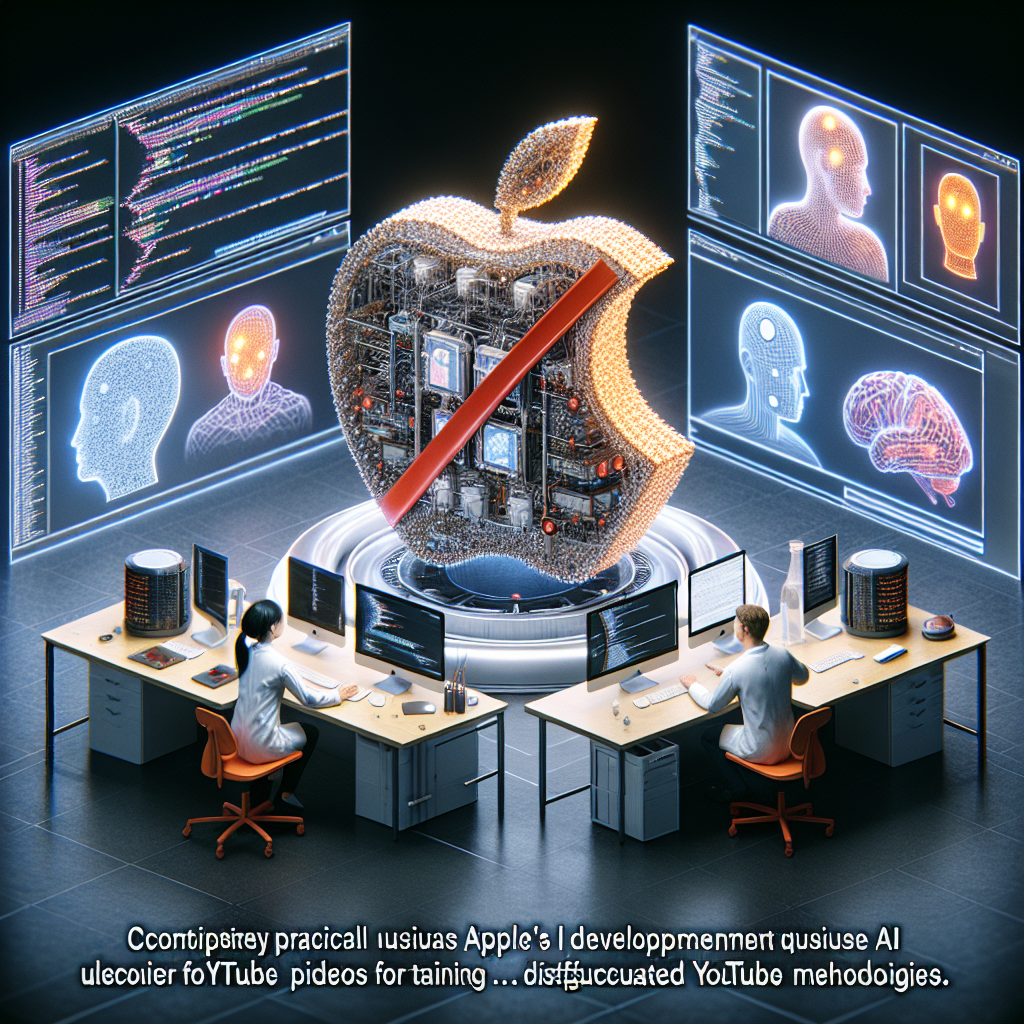
## Apple’s Ethical AI Development: Separating Fact from Fiction
The realm of artificial intelligence (AI) is continually advancing, with ethical considerations playing a central role in its development. Recently, Apple has made news by clarifying its position on the use of data for training its AI models. This article delves into Apple’s AI development practices, highlighting the ethical aspects and how Apple distinguishes between different AI projects.
### The Controversy: YouTube Video Training Data
The controversy erupted when it was revealed that EleutherAI, an AI research lab, had gathered subtitles from YouTube videos without obtaining explicit permission from content creators. This data, alongside information from Wikipedia, the English Parliament, and Enron staff emails, was compiled into a dataset known as “the Pile.” The purpose behind creating the Pile was to democratize AI development, making it accessible to individuals and organizations outside Big Tech.
### Apple’s Use of the Pile
While companies such as Nvidia, Salesforce, and Apple have used the Pile for various AI projects, Apple has clarified that this dataset was not used for its proprietary Apple Intelligence. Instead, Apple leveraged the Pile to train its open-source OpenELM models, which were released in April.
### Ethical AI Development Practices
Apple has consistently stressed its dedication to ethical AI development. The tech giant has invested millions in ensuring that its data sources are ethically obtained. This includes compensating publishers and licensing images from reputable photo library firms. Through these efforts, Apple aims to set a standard for responsible AI development in the industry.
### What is OpenELM?
OpenELM represents Apple’s contribution to the research community. These models are open-source and are not employed in any of Apple’s AI or machine learning features. The main objective of OpenELM is to advance research and offer tools for academic and independent researchers.
### Differentiating Apple Intelligence from OpenELM
Apple has made it explicit that OpenELM models were never meant to be part of Apple Intelligence. Additionally, there are no plans to develop new versions of the OpenELM models. This distinction is vital for understanding Apple’s approach to ethical AI practices and its commitment to transparency in AI development.
### Conclusion
In summary, Apple’s recent statements highlight its commitment to ethical AI development. While controversies like the use of YouTube video data by EleutherAI raise significant questions about data ethics, Apple’s clear separation between its various AI projects underscores its dedication to responsible practices. As the AI landscape continues to evolve, ethical considerations will remain crucial, guiding companies like Apple in their innovative endeavors.
### Q&A Session
**Q1: What is the Pile dataset?**
A1: The Pile is a dataset created by EleutherAI that includes harvested data from sources such as YouTube subtitles, Wikipedia, the English Parliament, and Enron staff emails. It aims to lower the barrier for AI development for those outside Big Tech.
**Q2: Did Apple use the Pile dataset for Apple Intelligence?**
A2: No, Apple has confirmed that it did not use the Pile dataset for Apple Intelligence. Instead, it was used to train its open-source OpenELM models.
**Q3: What are OpenELM models?**
A3: OpenELM models are open-source AI models developed by Apple. They were released to contribute to the research community and are not used in any of Apple’s AI or machine learning features.
**Q4: How does Apple ensure ethical AI development?**
A4: Apple ensures ethical AI development by investing millions in obtaining data from ethical sources. This includes paying publishers and licensing images from reputable photo library firms.
**Q5: Will there be new versions of OpenELM models?**
A5: No, Apple has stated that there are no plans to develop new versions of the OpenELM model.
**Q6: What distinguishes OpenELM from Apple Intelligence?**
A6: OpenELM is an open-source project aimed at research and is not integrated into any of Apple’s proprietary AI or machine learning features. Apple Intelligence is a separate entity with distinct data sources and applications.
**Q7: Why is ethical AI development important?**
A7: Ethical AI development is crucial because it ensures that data used for training AI models is obtained responsibly, respecting privacy and intellectual property rights. It sets a standard for transparency and accountability in the tech industry.
By addressing these key points, we aim to provide a thorough understanding of Apple’s approach to ethical AI development and the importance of transparency in this rapidly evolving field.
